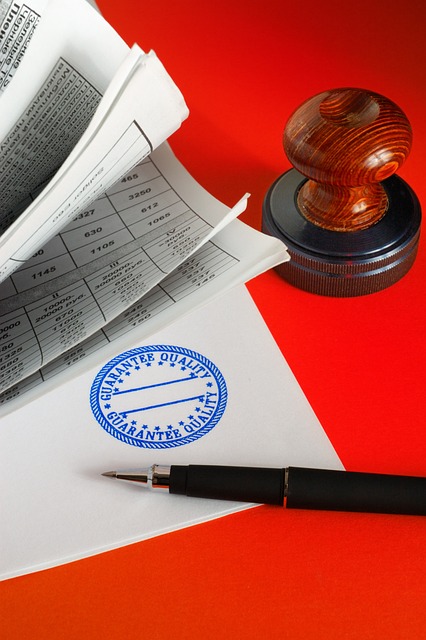In the UK, professional Licenses and Permits UK translation services are essential for non-English speakers to navigate legal requirements accurately. These services ensure understanding of rights and obligations, comply with regulatory landscapes, and avoid legal issues stemming from inaccurate translations. Reputable translators offer specialized knowledge in legal terminology and industry expertise, preserving document integrity. Choosing the right service prioritizes accuracy, compliance, and secure handling of confidential information, leveraging advanced technologies while adhering to ethical standards for efficient operations.
In the intricate landscape of UK regulations, accurate translations of licenses and permits are paramount. Professional translators play a pivotal role in ensuring compliance and avoiding legal pitfalls. This article delves into the significance of precise document translation for individuals and businesses navigating the UK’s complex regulatory environment. We explore the expertise required, key considerations when choosing a service, and best practices to unlock successful Licenses and Permits UK translation services.
- Understanding the Importance of Accurate Translations for Licenses and Permits in the UK
- The Role of Professional Translators in Navigating Complex Regulatory Documents
- Key Considerations When Choosing a License and Permit Translation Service
- Unlocking Success: Best Practices for Effective Licenses and Permits UK translation services
Understanding the Importance of Accurate Translations for Licenses and Permits in the UK

In the UK, licenses and permits are critical documents that grant individuals or businesses the legal right to operate in various sectors. These can range from driving licenses and work permits to industry-specific certifications like healthcare or construction permits. Accurate translations of these documents are paramount for several reasons. For non-English speakers, professional translation services ensure they understand their rights and obligations, facilitating seamless integration into UK society and the job market.
Moreover, precise translations are essential for legal compliance. Inaccurate or poorly translated licenses and permits can lead to confusion, invalidation, or even legal repercussions. Reputable UK license and permit document translators employ native-level proficiency and industry-specific knowledge to deliver exact interpretations, upholding the integrity of these vital documents.
The Role of Professional Translators in Navigating Complex Regulatory Documents

Professional translators play a vital role in navigating complex regulatory documents, especially when it comes to licenses and permits in the UK. These documents often contain intricate legal terminology and specific requirements that demand precision and expertise. Translators with specialized knowledge in this field ensure that all nuances are accurately conveyed from one language to another, preserving the integrity of the information.
Their skill set extends beyond language proficiency; they must also have a deep understanding of the UK regulatory landscape. This enables them to translate not just words but also cultural and legal contexts, ensuring compliance with local laws and regulations. With their assistance, individuals and businesses can efficiently obtain the necessary licenses and permits, avoiding potential delays or errors that could impact their operations.
Key Considerations When Choosing a License and Permit Translation Service

When selecting a Licenses and Permits UK translation service, several key considerations come into play to ensure accuracy and compliance. First and foremost, verify the translator’s expertise in legal documentation. Given the sensitive nature of licenses and permits, it’s crucial to choose a professional with extensive experience in this field. Look for translators who specialize in regulatory documents and understand the specific terminology and requirements associated with various UK licenses and permits.
Additionally, confirm the service’s adherence to industry standards and quality control measures. Reputable translation companies follow rigorous protocols, including using qualified human translators and advanced translation memory software to maintain consistency and accuracy. Ensure they provide a clear process for handling confidential information and offer secure file sharing options to protect your sensitive documents.
Unlocking Success: Best Practices for Effective Licenses and Permits UK translation services

Unlocking Success: Best Practices for Effective Licenses and Permits UK Translation Services
In the dynamic landscape of international business, licenses and permits play a pivotal role in navigating regulatory hurdles. For organizations operating within the UK or aiming to expand there, accurate and timely translation of these critical documents is essential. Choosing the right Licenses and Permits UK translation services can significantly impact success, ensuring compliance, minimizing delays, and fostering seamless operations.
Best practices dictate a thorough understanding of industry-specific terminology and regulatory nuances. Experienced translators should possess native-level proficiency in both source and target languages, coupled with expertise in legal and administrative documentation. Quality assurance processes, including proofreading by subject matter experts, are paramount to maintain accuracy and avoid costly errors. Additionally, leveraging advanced translation technologies while adhering to ethical standards ensures efficiency without compromising precision, ultimately contributing to a smooth and successful licensing journey.
When it comes to licenses and permits in the UK, accurate translations are non-negotiable. Professional translators play a pivotal role in navigating complex regulatory documents, ensuring compliance and avoiding costly mistakes. By following best practices and carefully selecting a reputable Licenses and Permits UK translation service, individuals and businesses can unlock success, streamline processes, and foster seamless interactions with governmental bodies.
